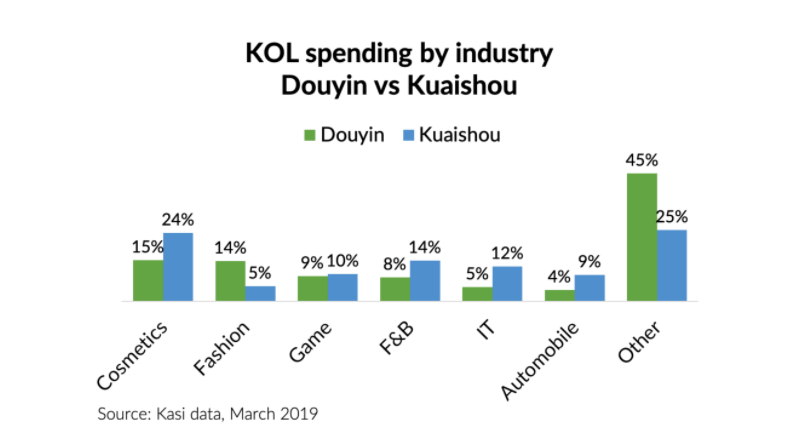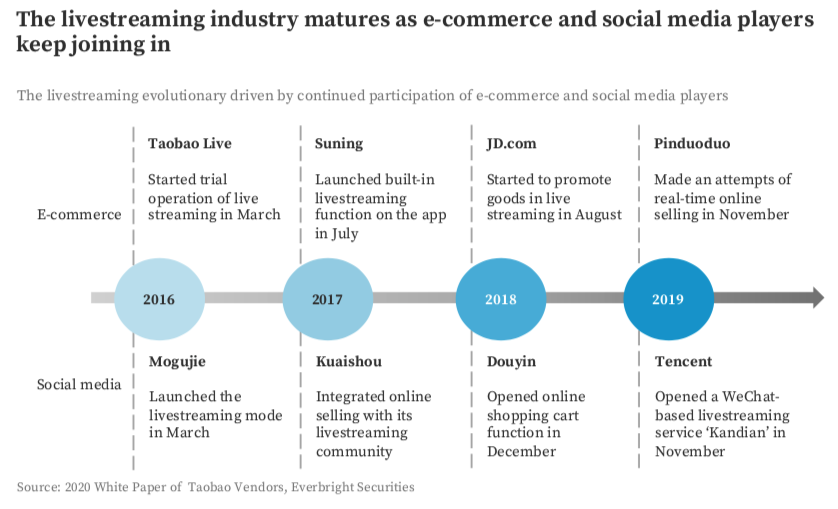The next Amazon competitor is likely going to look like a social or video app, not a shopping app.
Thread https://abs.twimg.com/emoji/v2/... draggable="false" alt="👇" title="Down pointing backhand index" aria-label="Emoji: Down pointing backhand index">
https://abs.twimg.com/emoji/v2/... draggable="false" alt="👇" title="Down pointing backhand index" aria-label="Emoji: Down pointing backhand index">
Thread
1. social = followers = built in distribution
2. social = user intent is discovery and inspiration (perfect for product recs!)
3. video = a great way to sell things (unboxing, demos, context)
4. live = limited time offers, interactive q&a
2. social = user intent is discovery and inspiration (perfect for product recs!)
3. video = a great way to sell things (unboxing, demos, context)
4. live = limited time offers, interactive q&a
For Amazon to fight against this shopping revolution, it& #39;s going to need to change from a text-centric, search driven platform to one that delivers on discovery -- users have to want to open the app without a specific intent to buy. Imagine going to the mall with no agenda...
Shopping is fun in real life. You can go with friends, treasure hunt for bargains, discover new products, better understand a brand’s vibe, ask store reps questions, and also touch and feel items so you have more confidence you’re going to love it.
Livestreaming ecommerce actually comes close to replicating all that fun. You shop with other viewers, ask questions and get real time answers, and experience FOMO with limited time promotions (buy in the next 30 minutes! Only 20 left!).
The shopping revolution will COMBINE ecommerce and entertainment, where both are equal in importance. Toss in gamification and boom. We may see waves of new brands and more pricing transparency for everything... products and services, alike.
So why are social companies getting into shopping?
1. it makes their ads worth a lot more
2. users spend more time in the app (more ads)
3. saved payment credentials = the KEY to superapps
4. influencers making $$ keeps them committed to content and growing their audience
1. it makes their ads worth a lot more
2. users spend more time in the app (more ads)
3. saved payment credentials = the KEY to superapps
4. influencers making $$ keeps them committed to content and growing their audience
What does livestreaming commerce mean for the passion economy? Influencers have a better shot of launching and selling their OWN branded products. In China, many influencers have their own lines of cosmetics or clothes, it’s no longer just for the Kylie’s of the world.
Why did this shopping revolution happen in China first? Taobao was a discovery platform (ad model) from day 1, so product discovery with media and visuals is built into the company’s DNA. Social livestreaming, that monetizes with tipping, is also a much more mature industry.
In China, livestreaming shopping works best for lower price points, say <$30, where it’s somewhat of an impulse purchase. But big items can work too, like cars and appliances during promotional events. Categories that work best are clothing, cosmetics, food.
There are a lot of features we can glean from China. Instead of badges, Taobao lets viewers become level 1-4 per host. Levels are earned by interacting with hosts, buying their products, and sharing the livestream -- they reveal a lot about how big of a fan the viewer is!
There are also useful features, like seeing when an influencer is going to stream next, and if it’s not scheduled, to get a notification when they go live. There’s also sticker overlays of the host& #39;s height and weight so viewers can guess how well clothes fit on themselves.
Interestingly, livestreaming commerce in China isn& #39;t winner take all (influencers aren’t exclusive either). More on this topic:
https://a16z.com/2019/12/05/video-first-ecommerce/
Please">https://a16z.com/2019/12/0... note that the foregoing should not be taken as investment advice; see http://a16z.com/disclosures ">https://a16z.com/disclosur... for more important info
https://a16z.com/2019/12/05/video-first-ecommerce/
Please">https://a16z.com/2019/12/0... note that the foregoing should not be taken as investment advice; see http://a16z.com/disclosures ">https://a16z.com/disclosur... for more important info
Fun fact, usage of Taobao Live (livestreaming commerce from Alibaba) peaks around 10PM.
This is how you know it& #39;s entertainment!
This is how you know it& #39;s entertainment!

 Read on Twitter
Read on Twitter



